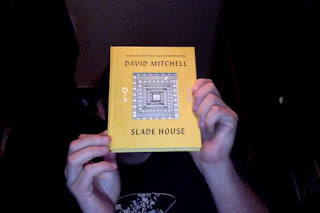With Eleven Hours, author
Pamela Erens tries to do for pregnancy what Knut Hamsun did for starvation and
what Hubert Selby Jr. did for loneliness: take an experience, whittle out the
fat of extraneous character development and give the closes possible external representation
of the emotions said experiences cause in the one who is going through it, And
while this story is a lot more hopeful and a LOT less horrifying for those
rather distinguishable examples, this book exceeds pretty well. While it breaks
the promise on the front flap about its focus on a woman and labor and the
nurse who is helping her, who is also pregnant, we learn the most about those
two even with the interruption of other characters. It avoids any kind of feminist
leaning, or at least any that I noticed and instead focuses the acts that
brings humans together, in this case child birth, as opposed to the life experiences
that may divide us. The woman in labor is Lore, who came into the New York
Hospital alone, with a bare-bones birth plan, a ring crushing her swollen
finger, and a covert need to connect with someone or something. That person is
Franckline, a Haitian nurse who is dealing with one of multiple pregnancies,
all of which have ended in miscarriages. We learn a lot about these two, but it
is uneven, because Lore’s story is more fascinating to me than Franckline’s,
which steeped in the way her culture viewed the act of childbirth and is dwarfed
by Lore’s life at the moment, including a love triangle with a beta-male
husband and a best friend with bi polar disorder. The last few pages are
sublime, as the birth comes with serious complications, and the story saves us
from a tidy ending, instead it floats throughout the hospital, and we get a
glimpse of the bittersweet lives of the hospital patients. It caps a rather
quaint and moving story about finding connection amid chaos and despair.
Rating: 4/5








